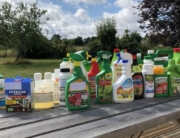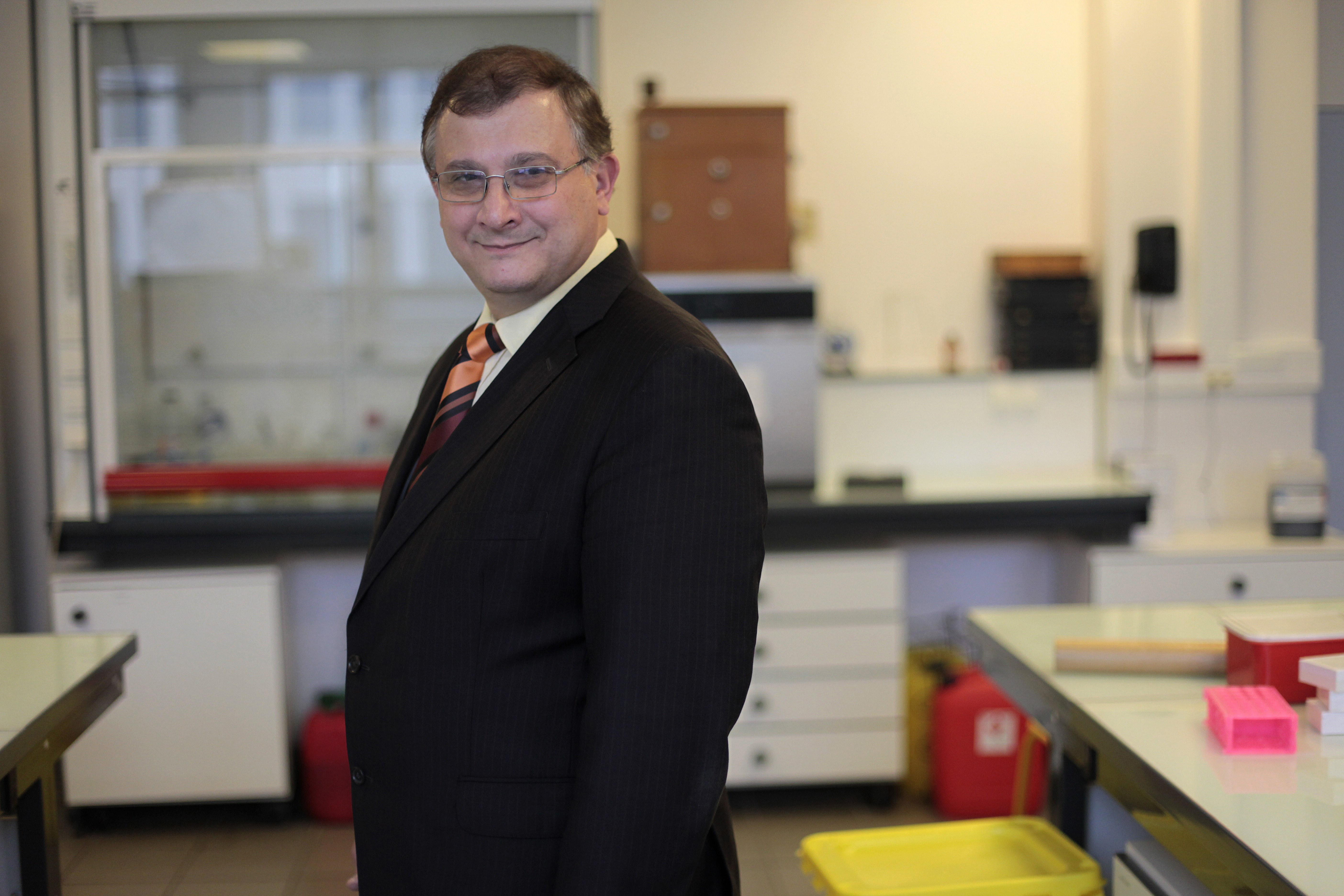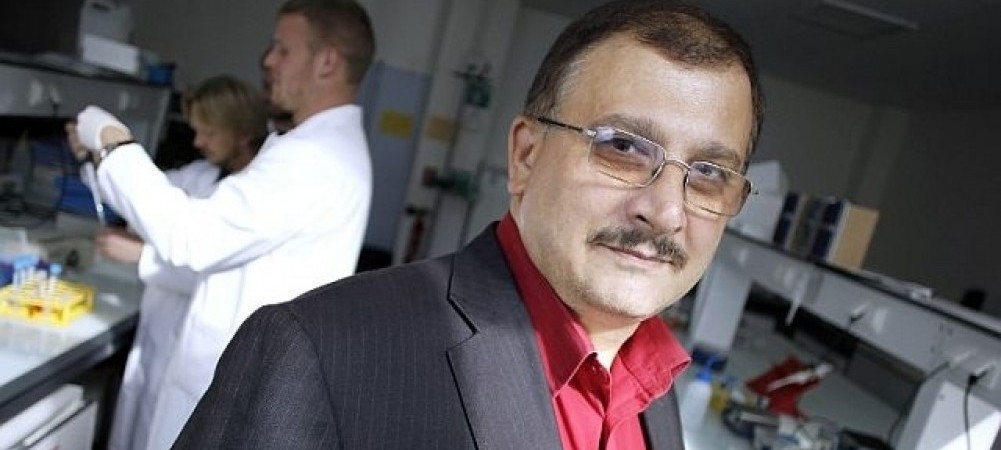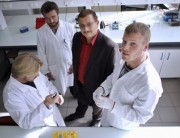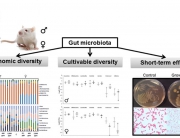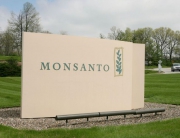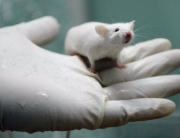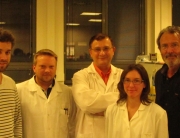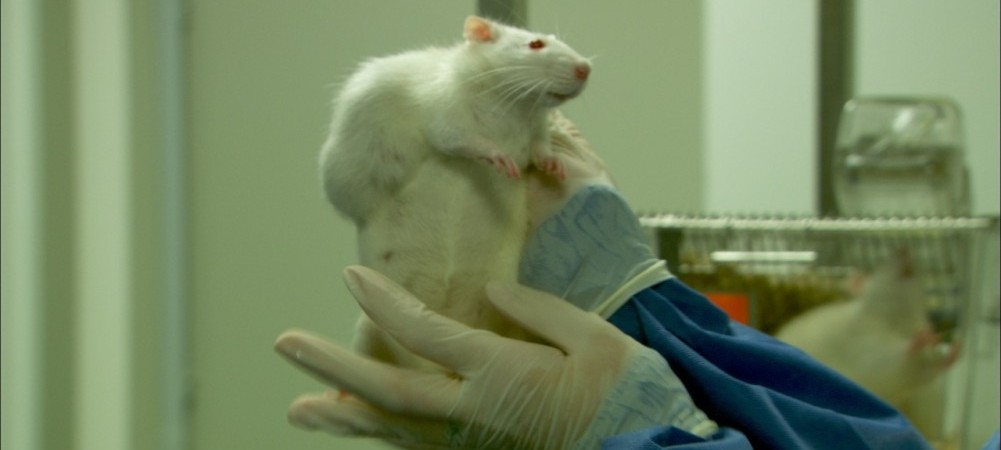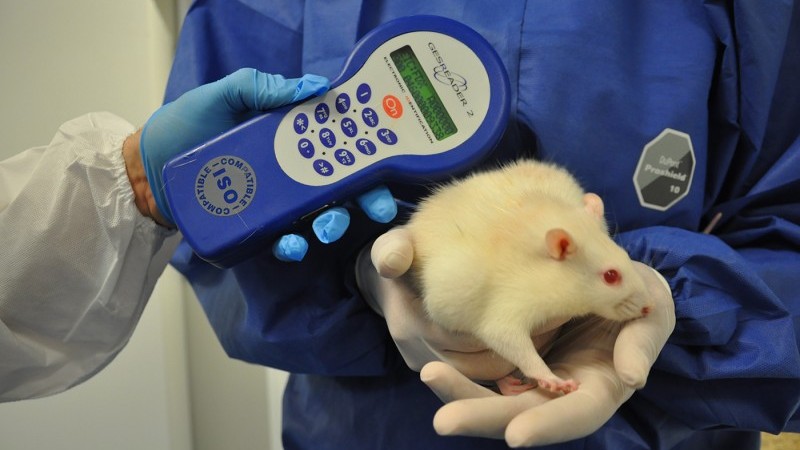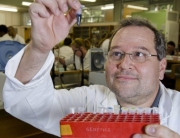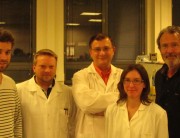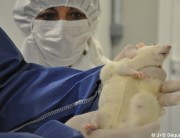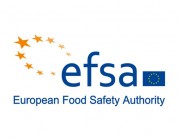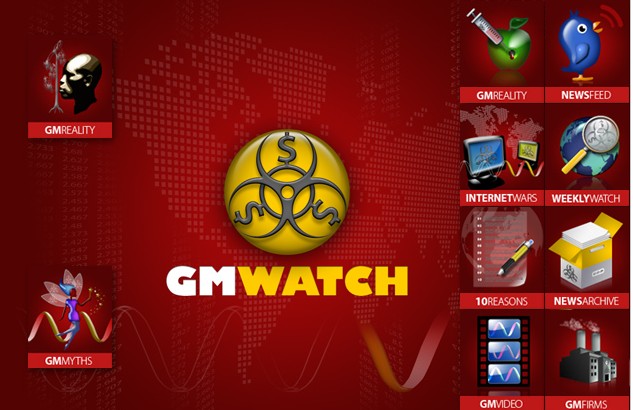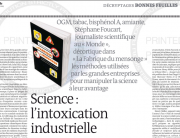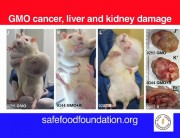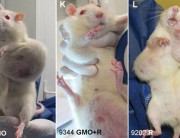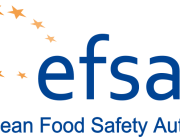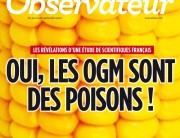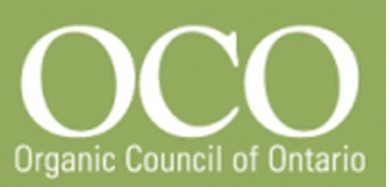The fact that two French scientists, respected the world over for their studies on the effects of the herbicide Roundup, are giving a speech together in the Roc’h Tredudon restaurant in Plouneour-Menez is no small thing. For the local media, the press conference was billed as “an impact study,” or “an explosive and exceptional event.” Dr. Gilles-Eric Séralini and Dr. Robert Belle are leading lights in the field, setting the world on fire with their work on pesticides. Robert Belle, as a scientist of the Biological Station in Roscoff, recalled how he has been working and exchanging information with Séralini since 2001. “At that time I was exploring the potential toxicity of Roundup. Naturally, I have keenly followed the controversy surrounding the results of his work, on the effects of GM crops, NK 603 maize and pesticides on rats.”
Source: Argentine Association for Environmental Journalists (AAEJ) – Medio&medio
by Dr. Graciela Gomez
May 27, 2013
Translated into English from original Spanish article by New Europe Translations
Belle supports the Séralini study. According to him, “The research agencies and the media rounded on him and tried to discredit his work. Séralini is the only scientist to carry out long-term testing, examining the effects on health after existing on a diet of a Roundup-resistant GM crop; compared with a diet based on crops not treated with Roundup. He is also the only scientist who has taken 46 different parameters into account, including the development of cancerous tumors. The scientific community, so far, has not validated any of the methods or estimated results on the effects on the rats, claiming that the results are insignificant. I respect that. But one thing is true: if Gilles-Eric Séralini is right, we’ve got a problem.”
Belle was eager to reiterate that, “All GMOs are not necessarily harmful. The issue is that if the damage they produce had already been demonstrated scientifically, then the French government would be shown in a rather unflattering light. They have to justify the authorisations that have been given to date, for example, on the purchase of soybeans, canola or GM maize seeds from abroad.” Le Telegramme, a Breton journal, published a note to both scientists. The note asked of Belle: “And what of the collusion allegations filed against Gilles-Eric Séralini?”
“They are baseless and are part of the whole conspiracy,” replied Belle.
In another juicy interview, published on May 22 in Bretagne Durable, the interviewer Estelle Caudal said that the study undertaken by Gilles-Eric Séralini and his team of researchers in molecular biology was carried out between 2008 and 2011, and began with a banal observation.
“Given that pesticides have long-term effects on human beings, why not evaluate those long term effects? Before us, nobody carried out this type of research,” said Gilles-Eric Séralini, at a conference in Plouneour-Menez.
“This starts with the premise that an active ingredient – which can cause side-effects deep within our cells – causes direct changes to our genes, and also, at a level above genetics: epigenetics. It is the cumulative effect of chemicals on our genes.”
According to the researcher, the genes work best when they’re “naked”. If they are covered up, i.e. enveloped in pesticides, this will have a negative impact on how they function – causing chronic diseases. Regarding the issue of lack of evidence, he stated, “It is like measuring the impact of tap water on the body of a person who drank alcohol for his entire life.” The results are alarming: after two years of experiments, only 90 out of 200 rats survived.
“In 2013, we found the toxic chemicals which are present in Roundup; these are also present in many other pesticides: for example, POE-15. These are classified as inert products by the manufacturer, and as a result no agency has requested long-term testing of the products.” The [industry] tests performed in France were carried out on only 6 rats over a three-week period, followed by tests for irritation, redness, and effect on the eyes. For the industry, only the instructions on the label need to be adhered to: “Avoid contact with the eyes or skin”. However, no tests on the long-term effects of this product have been carried out.” He added, “It is difficult to gain access to the studies because the Monsanto group claims they are its intellectual property.”
… “The effects of these pesticides have been underestimated,” Séralini said. He added, “The largest sellers of pesticides are also the largest sellers of drugs.” He said one can find Monsanto products in almost all pharmacies and 90% of patents are in the hands of the agricultural giant, whose main activity is selling these patents.
Gilles-Eric Séralini’s study on the impact of pesticides has been widely criticized in the scientific world. The European Food Safety Authority (EFSA) has said, “It is not possible to draw valid conclusions about the development of tumors in the rats tested.” The French National Food Safety Agency ANSES also refuted the study conducted by the professor, citing “weaknesses” in the work, but called for an investigation into the long-term consumption of GMOs when fed in combination with pesticides to be conducted. Accustomed to his research eliciting tantrums from the multinationals, on 12 November Séralini responded to them in the journal, Food and Chemical Toxicology, by publishing: “Answer to critics: Why is there long-term toxicity associated with consumption of glyphosate or Round-Up tolerant NK603 GM maize?”
In their response, the scientists claimed, “Some critics have emphasized the fact that there are no reports on the side-effects suffered by farm animals or humans in the US who have consumed foods derived from GMO crops. Such statements are scientifically erroneous for the following reasons:
– Firstly, it is important to bear in mind that there have been no epidemiological studies of the human population, nor a follow-up to studies on farm animals, to try to correlate any effect on health observed in relation to the consumption of a genetically modified crop.
– Secondly, we must remember that farm animals are not bred to live for the entire duration of their natural life cycle; therefore, they often do not live long enough to develop long-term chronic diseases, which is in contrast with the rats in our experiment.
– Thirdly, since there is no GMO labeling in the U.S., the actual amount consumed is unknown, and there is no control group. Therefore, without clear traceability or labeling, no epidemiological survey can be done.
When one evaluates the regulation of GMOs, chemical products and drugs, the tests are performed by the companies themselves, often in their own laboratories. As a result, conflicts of interest arise. “Our study does not seek to market a new product. On the contrary, we wanted to calculate the risk these products pose to health. This is the most detailed test that has been conducted so far, and it is independent of biotechnology companies and pesticides. We encourage others to replicate similar long-term experiments, with greater statistical power,” said Séralini.
This response also answered criticism from four Brazilian pro-GM scientists, two of whom are members of the National Technical Commission of Biosafety (NTCBio) in a report from October 2012. This report was published as “the vision of NTCBio” as a whole, in combination with the Ministry of Science, Technology and Innovation in Brazil. But it is now clear that no such consensus exists in NTCBio.
In March 2013, it was discovered that 15 members and ex-members of NTCBio had produced a detailed counter-report discrediting the arguments of the aforementioned four scientists, and supporting the validity of Séralini’s findings. This was stated in a letter to Flavio Finardi, NTCBio President, and the Ministry of Foreign Affairs. Among many other denials, the Commission members clarified: “As we understand it, this document, prepared by four scientists, two of whom are members of the NTCBio, cannot be considered as the Commission’s position, since it was not evaluated by a plenary session. Even if it had been, the doctors’ opinions do not represent the consensus view of this Commission.”
For its part, in a letter dated October 19, 2012, the French National Food Safety Agency (ANSES) makes reference to the Séralini study after concluding there is a need to “carry out studies in order to trace the potential health effects associated with long-term consumption of GMOs or exposure to the phytosanitary [pesticide] formulations.” It also recommends that “these studies should be particularly focused on exposure to GMOs and the associated plant protection formulations” and that “these studies should be publicly funded and be based on a detailed experimental protocol that will enable a response to the questions raised.”
Eighty percent of transgenic products are developed to withstand the pesticides; the remaining 20% are engineered to produce an insecticide. The combined effect of these contaminants in human cells is what Gilles-Eric Séralini and his team worked on, studying placental and umbilical cord cells, in cell lines and human embryos.
Meanwhile, we are awaiting the publication of the book, Tous Cobayes! in Spanish in October of next year, by the Barcelona-based publisher Need Ediciones, the presentation of which to the general public promises to be another explosive event for which Dr. Séralini will be in Spain for four days – much to the delight of my friends and groups [who were present] last April.







